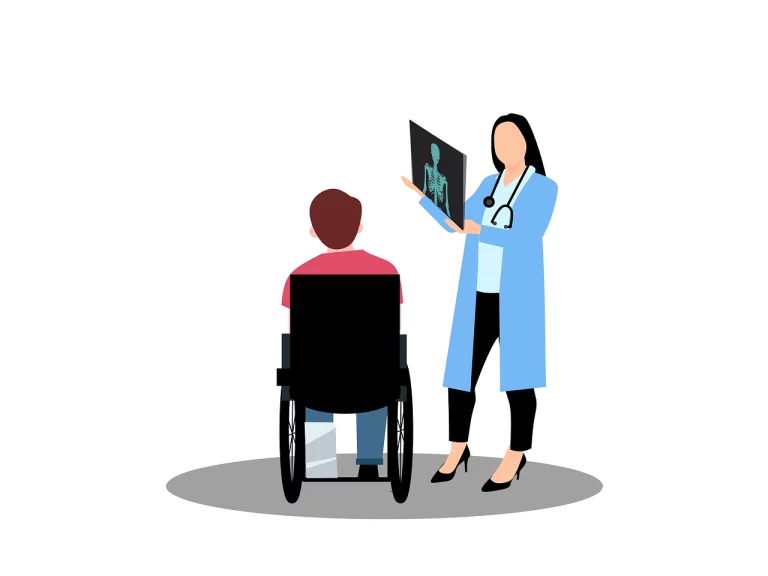Book Appointment Now

The Role of AI in Enhancing Nursing Clinical Decision-Making
The integration of AI in nursing clinical decision-making is reshaping the future of healthcare delivery. As artificial intelligence continues to advance across sectors, nursing professionals are uniquely positioned to leverage its capabilities for timely, accurate, and efficient care decisions. From risk prediction to personalized care planning, AI is becoming an indispensable tool in the daily work of nurses, bolstering their critical thinking and enabling evidence-based interventions.
Count on our nursing experts to deliver 100% custom paper on the role of AI in enhacing nursing clinical decision-making
Write my nursing essay
The Evolution of Clinical Decision-Making in Nursing
Clinical decision-making has always been at the core of nursing practice. Traditionally, nurses have relied on a combination of education, experience, and intuition to assess patient conditions and determine the best course of care. While this human-centered approach is irreplaceable, it can be limited by cognitive biases, information overload, or gaps in knowledge. With the rise of digital health records and increased complexity in patient care, there emerged a need for technological solutions that could augment nursing judgment without replacing it. This is where artificial intelligence in healthcare finds its most meaningful application—supporting and streamlining the decision-making process.
Understanding How AI Works in Nursing Settings
AI refers to computer systems that can simulate human intelligence, learn from data, and make decisions. In nursing, AI is often embedded in tools such as clinical decision support systems (CDSS), which analyze patient data and provide real-time recommendations. These systems can be integrated into electronic health records (EHRs) to flag abnormal vital signs, recommend diagnostic tests, suggest care pathways, or issue early warnings for patient deterioration. AI models can process vast amounts of patient information far more quickly than a human could, identifying patterns that may not be immediately evident to even experienced clinicians.
For example, AI can detect subtle changes in a patient’s lab values or vital signs that precede the onset of sepsis. A nurse working in an intensive care unit may receive an alert from the system, prompting early intervention. In this way, AI doesn’t take over the decision—it enhances the nurse’s ability to act swiftly and accurately, improving patient outcomes.
Predictive Analytics and Risk Stratification in Nursing
One of the most powerful contributions of AI in clinical decision-making is through predictive analytics in nursing. By analyzing historical and real-time data, AI models can predict which patients are at risk of developing certain conditions, such as pressure ulcers, hospital-acquired infections, or falls. Nurses can then implement targeted preventive measures tailored to individual patients.
For instance, if a patient is flagged as high-risk for developing deep vein thrombosis, the nurse can prioritize early ambulation, compression therapy, or even collaborate with the physician on pharmacological interventions. Predictive analytics empowers nurses with foresight, enabling proactive rather than reactive care.
Furthermore, in community health settings, AI can be used to identify populations at high risk for chronic illnesses like diabetes or hypertension. This allows nurses to plan focused education, screenings, and follow-up interventions, thereby enhancing population health management.
AI-Powered Diagnostics and Triage Support
AI is increasingly used to assist in diagnostics, especially in fast-paced environments like emergency departments. Tools that use machine learning and natural language processing can analyze symptoms, lab results, and imaging findings to suggest possible diagnoses. Nurses can use this information to prioritize care, consult with physicians, and ensure no critical signs are overlooked.
In telehealth and remote care settings, AI-powered applications help nurses triage patients effectively. For example, an AI chatbot may ask a series of questions, analyze responses, and then classify the urgency of the case. This allows nurses to allocate their time and resources more efficiently, focusing on patients with the greatest need.
Importantly, these tools do not replace clinical expertise but act as a second layer of scrutiny—catching what might otherwise be missed and reducing the risk of diagnostic errors.
Enhancing Evidence-Based Practice in Nursing
Evidence-based practice is fundamental to nursing care. However, staying up-to-date with the latest research and clinical guidelines can be challenging, especially given the rapid pace at which medical knowledge evolves. AI systems can address this by continuously scanning medical literature, clinical trial data, and treatment protocols, and then synthesizing this information into actionable insights.
When nurses face complex clinical situations, AI can suggest interventions supported by the latest evidence. For example, when managing a patient with multiple chronic conditions, an AI engine might recommend a care plan that aligns with current best practices while taking into account the patient’s comorbidities and personal preferences.
This integration of AI into clinical workflows promotes consistency, reduces variability in care, and enhances patient safety. By anchoring decisions in up-to-date evidence, AI strengthens the scientific foundation of nursing practice.
The Role of Nursing Informatics in AI Integration
AI in nursing clinical decision-making would not be possible without the support of nursing informatics. Nursing informatics professionals act as a bridge between clinical nursing and information technology. They help design, implement, and evaluate AI systems, ensuring these tools are user-friendly, relevant, and aligned with nursing workflows.
For example, when a new CDSS is introduced in a hospital, nursing informatics specialists work with bedside nurses to customize the alert thresholds, terminology, and interface so that it integrates seamlessly into daily practice. This collaboration is crucial because poorly designed systems can lead to alert fatigue, resistance to adoption, or even compromised patient care.
Moreover, nursing informaticians are instrumental in training staff on how to interpret AI-generated insights and integrate them into patient care planning. Their role ensures that technology enhances rather than hinders the human aspect of nursing.
Ethical Considerations and the Human Touch
Despite the many benefits of AI in nursing, its use raises important ethical questions. Nurses must ensure that AI does not compromise patient autonomy, privacy, or dignity. For instance, reliance on algorithmic recommendations should never override the nurse’s judgment or the patient’s preferences.
Bias in AI models is another concern. If the data used to train an AI system is not representative, it may lead to skewed results that affect certain populations unfairly. Nurses have a responsibility to advocate for equitable care and question the validity of AI outputs, especially when they conflict with clinical observation or patient input.
Ultimately, while AI provides valuable tools for decision-making, it cannot replace the compassion, empathy, and holistic care that define the nursing profession. The human connection remains central to nursing, and AI must be used in a way that strengthens rather than diminishes that bond.
Preparing the Nursing Workforce for an AI-Driven Future
As AI becomes more embedded in healthcare systems, there is a growing need to prepare nurses for this technological transformation. Nursing education must include training on digital literacy, data interpretation, and ethical use of AI. Continuing professional development programs can help practicing nurses stay current with emerging tools and trends.
Nurses must also develop critical thinking skills to evaluate AI recommendations critically. Blind reliance on AI can be dangerous; instead, nurses should view AI as one of many tools that inform their clinical reasoning. Institutions have a responsibility to support nurses through training, mentorship, and by fostering a culture that encourages innovation and collaboration between clinical and technological teams.
The integration of AI in nursing clinical decision-making is revolutionizing how nurses assess, plan, and deliver care. From predictive analytics and diagnostic support to real-time alerts and evidence-based recommendations, AI empowers nurses to make better, faster, and more informed decisions. However, the successful adoption of AI depends on thoughtful design, ethical application, and adequate training of the nursing workforce.
Rather than replacing nurses, AI enhances their capabilities, allowing them to focus more on patient-centered care while benefiting from data-driven insights. As we move forward, the synergy between human judgment and artificial intelligence holds immense promise for improving healthcare outcomes and elevating the role of nurses in the digital age







